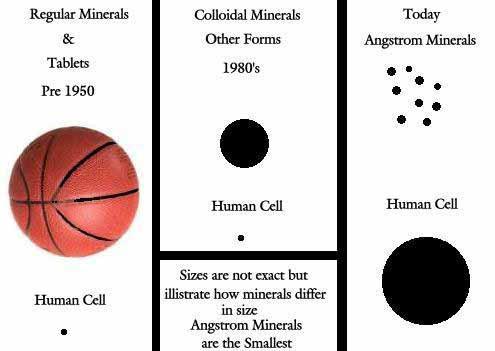Which to take? Would these be okay with my healing esophageal ulcer, gastritis and esophagitis? I don’t want to aggravate anything in my GI, but I really believe I am deficient and need this.
Which magnesium supplement which to take with esophageal ulcer, gastritis and esophagitis?
Here are some resources:
[1] “…Most often, an esophageal ulcer is caused by a bacterium known as Helicobacter pylori, or H. pylori for short. The bacteria damage the mucosal lining of the esophagus. This makes the esophagus more susceptible to damage by stomach acid. Acid reflux occurs when stomach contents move backward into the esophagus. …” …More
[3] Acute Gastric Injury Caused by Undissolved Sodium Picosulfate/Magnesium Citrate Powder
[4] The uses and benefits of magnesium glycinate: “…People often use magnesium glycinate instead of other magnesium supplements, as the body finds it easier to absorb magnesium in this form. It is also one of the gentlest supplements on the stomach. People often use magnesium glycinate instead of other magnesium supplements, as the body finds it easier to absorb magnesium in this form. …”
[5] “…The most frequently used probiotic strains for H. pylori infection are Lactobacillus johnsonii La1 (177,196,197). Lactobacilli, the predominant gut bacteria, inhibit adhesion of H. pylori to gastric epithelial cells in vitro. Thus, using lactobacilli exogenously can help in the eradication of H. pylori. Apr 26, 2016 …More
[6] Helicobacter pylori infection: efficacy of probiotics and role of genome wide association studies
How do you know that you need magnesium supplements? Most people on keto find that proper salt intake keeps magnesium, potassium, and calcium properly regulated, as well. The mechanisms that keep the minerals in balance are all interrelated. You might find that you can make do by including leafy greens in your keto diet and getting enough salt.
Ty, I know it’s not H. Pylori as I was tested for that; it was most likely caused by my going off PPI’s cold-turkey and taking Potassium and Bentaine Hydrochloride in large quantities and without food while trying to actually raise my stomach acids so that my stomach valve leading to my esophagus would close; the problem was taking the supplements on an empty stomach - there have been studies on the effects of Potassium-caused esophageal ulcers; apparently, it is pretty common 
I was wondering about that!
OMG HCL Betaine with out food? VER VERY BAD?
Thanks @PaulL,
I’ve switch to Carnivore because vegetables make me terribly bloated - I love and miss avocados :(. I’ve been doing very strict Keto for about 2 months; the last 2.5 weeks on Carnivore. I think I might be magnesium deficient because I am still weak all the time even though I make sure all my electrolytes are good - especially salt and potassium, with the exception of Magnesium which is suspect. Regardless, it’s hard for me to take in veggies because I’ve (unfortunately) had bariatric surgery that limits my ability to take in enough of them to get the nutrients I need; I guess meat is more nutrient dense and easier for me it seems (I eat beef, pork, liver, kidney, heart).
Any other ideas would be appreciated.
Yes  That’s what you get when you listen to “Dr.” Eric Berg and assume that just because there are no health caveats listed in the YouTube video, doesn’t mean there are none. Anyhow, I’ll never make that mistake again.
That’s what you get when you listen to “Dr.” Eric Berg and assume that just because there are no health caveats listed in the YouTube video, doesn’t mean there are none. Anyhow, I’ll never make that mistake again.
Berg and others clearly state “…don’t take HCL, Betaine, Pepsin unless your eating or taking it with protein…“ and the warning is clearly written on the bottles, problem with it is people just don’t bother to read anything or lack the ability to follow direction?
Angstrom Magnesium (available on Amazon now as well as elsewhere) is nano-size particles and in liquid form - you put it under your tongue for 15-30 secs and it instantly absorbs without having to go through the GI tract, and thus is very effective! Much more value for money than typical gut-absorbed kinds. Mag is responsible for thousands of bodily processes, and much modern agriculture soil is now very deficient in it - so supplementing can really boost healing. I take it every few days myself.

Also - for the gastritis/ulcer stuff there are also some famous traditional digestive herbal allies, which can be very beneficial allies within minutes or hours of taking them - and are quite economical.
The superfood Ginger taken in dry encapsulated form with every meal (it’s a pro-enzyme and anti-inflammatory reknown for healing digestive issues). The only contraindication with Ginger is statins, as it boosts circulation and blood flow.
Also Fennel seeds, which can be chewed after every meal to sweeten/cool the innards (Indians chew them after every meal), boost digestive balancing, and also dispel any bloating/gas. Both of these herbs have a long history in traditional eastern medicine, as healing allies, not merely supressants - and they’re very cheap and easy to find. High quality Ginger caps and also Fennel seeds can be found in many drugstores and grocery stores these days - and can be astonishingly helpful for addressing gastric distresses and root causes.
I guess that all depends on which of the 1000 Dr. Berg videos you’re talking about, because the myriad of the ones I’ve watched on “low stomach acid” addressed none of it; regardless, ultimately, it’s my fault…I should have known and I’ve learned my lesson.
No “warnings” on my bottles BTW, and Pure Encapsulations is some of the best you can buy. Just goes to show me that I really need to do my homework because no one will do it for me 
